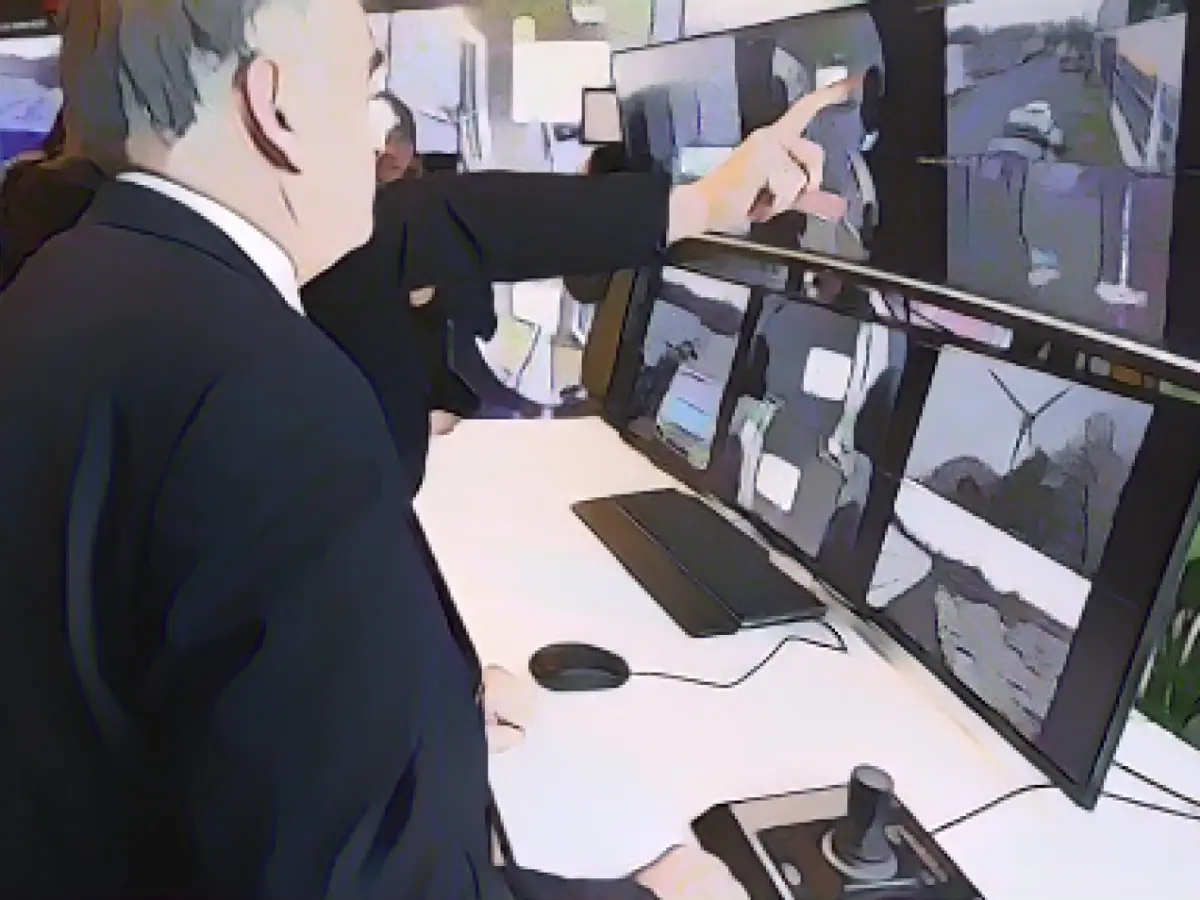In the future, police forces in North Rhine-Westphalia, Germany, will utilize high-tech mobile video technology to bolster crime prevention efforts in problematic areas across the state. This initiative, announced at a gathering in Duisburg, involves ten trailers, each equipped with extendable masts and six cameras capable of reaching heights of up to five meters.
These mobile surveillance systems will supplement existing stationary cameras in some cities. Minister Herbert Reul (CDU) believes this added capabilities will offer enhanced operational assistance for police, providing a more comprehensive view of the situation. The footage can only be accessed by law enforcement and must adhere to guidelines stated in the Police Act.
The Act dictates that video surveillance is legal in preventing criminal activities, as long as there's a history of incidents at the location or hints of serious offenses being plotted. These recordings can only be kept for a maximum of 14 days if they're not required for criminal investigations.
Enhanced Crime Investigation and Prevention
Mobile video surveillance systems hold the potential to significantly boost law enforcement's ability to combat and investigate crimes. Real-time monitoring enables swift intervention, while footage gathered serves as crucial evidence in investigations. Videos can help piece together events, identify suspects, and bolster investigations.
Elevated Public Safety and Community Trust
These mobile systems can contribute to increased public safety, particularly in areas with high crime rates. By employing body cameras during weekend patrols or pilot projects, assaults on law enforcement personnel may be mitigated. Additionally, body cams can facilitate improved police-community interaction by promoting increased transparency, potentially resolving disputes and fostering trust.
Regulatory Compliance
When utilizing mobile video surveillance systems, adherence to specific regulations is critical to safeguard privacy and protect data. For instance, in France, the National Committee on Information and Freedoms (CNIL) established guidelines to ensure responsible use of these technologies by law enforcement agencies, such as the police, gendarmerie, and municipal police.
Respect for data protection regulations, like the EU's General Data Protection Regulation (GDPR), is essential. This includes notifying individuals in public spaces when they're likely to be filmed, securing footage from unauthorized access, and upholding regulatory compliance to avoid legal consequences and preserve overall trust within the community.








